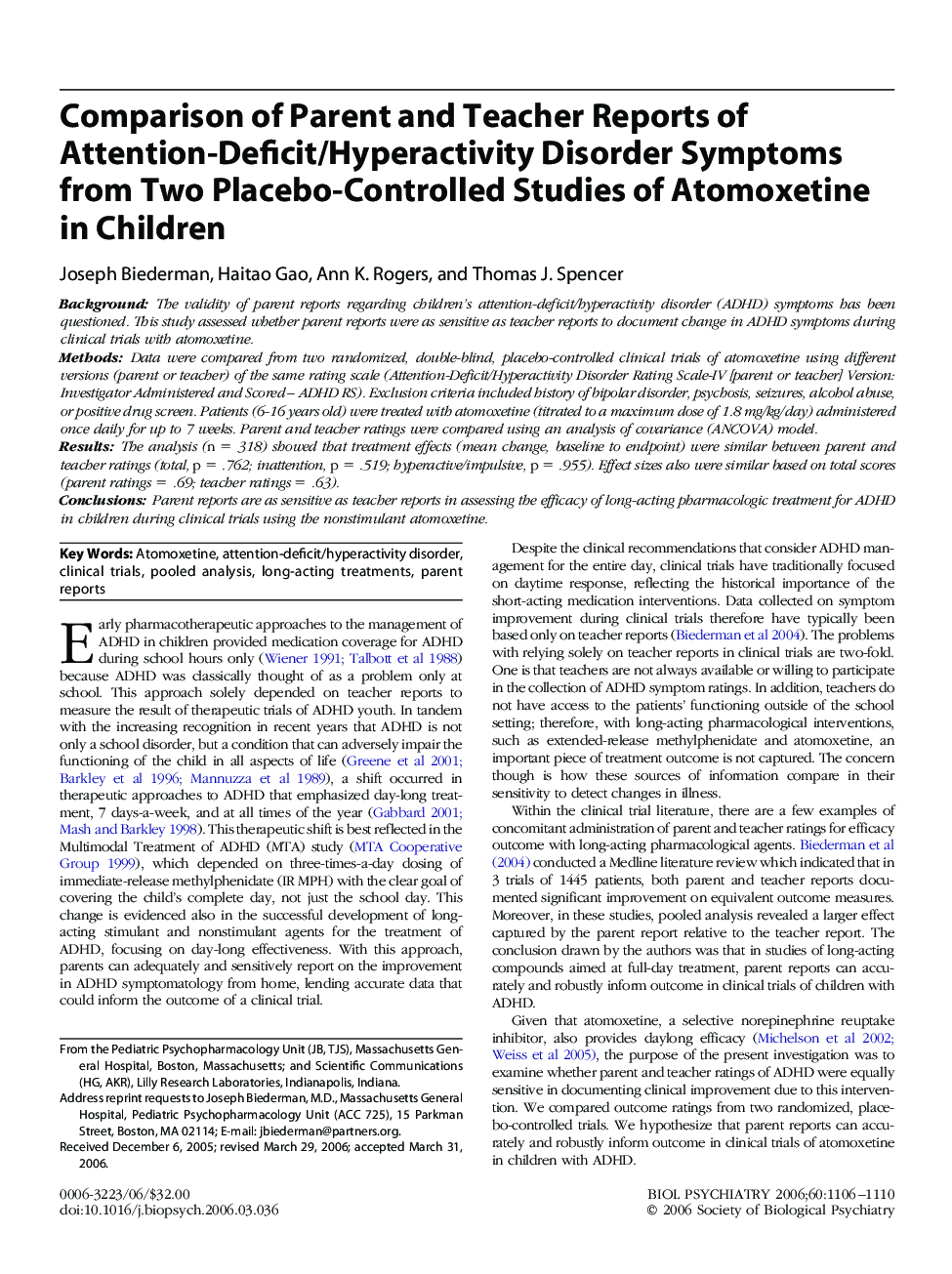| Article ID | Journal | Published Year | Pages | File Type |
|---|---|---|---|---|
| 4180396 | Biological Psychiatry | 2006 | 5 Pages |
BackgroundThe validity of parent reports regarding children’s attention-deficit/hyperactivity disorder (ADHD) symptoms has been questioned. This study assessed whether parent reports were as sensitive as teacher reports to document change in ADHD symptoms during clinical trials with atomoxetine.MethodsData were compared from two randomized, double-blind, placebo-controlled clinical trials of atomoxetine using different versions (parent or teacher) of the same rating scale (Attention-Deficit/Hyperactivity Disorder Rating Scale-IV [parent or teacher] Version: Investigator Administered and Scored – ADHD RS). Exclusion criteria included history of bipolar disorder, psychosis, seizures, alcohol abuse, or positive drug screen. Patients (6-16 years old) were treated with atomoxetine (titrated to a maximum dose of 1.8 mg/kg/day) administered once daily for up to 7 weeks. Parent and teacher ratings were compared using an analysis of covariance (ANCOVA) model.ResultsThe analysis (n = 318) showed that treatment effects (mean change, baseline to endpoint) were similar between parent and teacher ratings (total, p = .762; inattention, p = .519; hyperactive/impulsive, p = .955). Effect sizes also were similar based on total scores (parent ratings = .69; teacher ratings = .63).ConclusionsParent reports are as sensitive as teacher reports in assessing the efficacy of long-acting pharmacologic treatment for ADHD in children during clinical trials using the nonstimulant atomoxetine.
